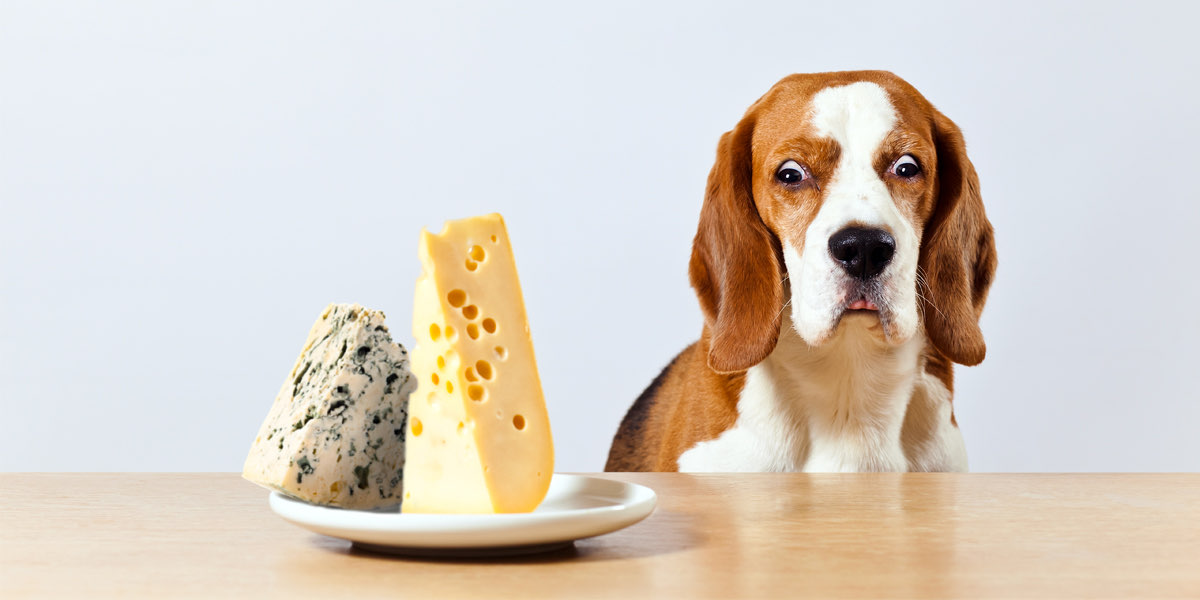If you have a Maltese dog, you might be surprised to learn that cheese can actually be beneficial for them. While many dogs are lactose intolerant, Maltese dogs have been found to have a higher tolerance for dairy products. So, does that mean you can freely share your cheese plate with your furry friend?
When it comes to Maltese dogs and cheese, moderation is key. Cheese can be a good source of protein and calcium for your pup, but it should only be given in small quantities as an occasional treat. Too much cheese can lead to weight gain and digestive issues in Maltese dogs, so it’s important to keep portions in check. Consider cutting up a small piece of cheese into tiny cubes and use it as a training reward or a way to hide medication. Always consult with your veterinarian before introducing any new foods into your dog’s diet, including cheese.

Are Cheese Good for Maltese Dogs? Exploring the Benefits and Risks
Maltese dogs are adorable and beloved companions, and like any pet, their owners want to provide them with a healthy and balanced diet. Cheese is one of those foods that many people enjoy, and it’s natural to wonder if it can be shared with our furry friends. In this article, we will dive into whether or not cheese is good for Maltese dogs, exploring both the benefits and potential risks. So let’s unravel the cheesy mysteries and find out if Maltese dogs can enjoy this dairy delight!
The Nutritional Value of Cheese for Maltese Dogs
Cheese is a dairy product made from the milk of cows, goats, or sheep. It is a rich source of essential nutrients, including protein, calcium, phosphorus, and vitamins such as vitamin A and vitamin B12. These nutrients are vital for the overall health and well-being of dogs, including Maltese dogs.
Protein plays a crucial role in building and repairing tissues, supporting the immune system, and providing energy. Calcium and phosphorus are essential for healthy bones and teeth, helping to prevent conditions like osteoporosis and dental decay. Vitamin A is important for vision, growth, and immune function, while vitamin B12 helps maintain a healthy nervous system.
However, it’s important to note that while cheese can provide nutritional benefits, it should be given in moderation. Maltese dogs have small bodies with specific dietary requirements, and overfeeding them with cheese or any other food can lead to various health issues. Let’s explore the potential benefits and risks of incorporating cheese into a Maltese dog’s diet.
1. The Benefits of Cheese for Maltese Dogs
While cheese can be a tasty and nutritious addition to a Maltese dog’s diet, it’s crucial to choose the right type and offer it in appropriate amounts. Here are some potential benefits of feeding cheese to Maltese dogs:
A. Protein-Rich Snack
Cheese is an excellent source of high-quality protein, which can be beneficial for Maltese dogs. Protein is essential for muscle development, repair, and overall growth. Offering small amounts of cheese as a treat or training reward can provide a tasty protein boost for your furry friend.
B. Calcium and Phosphorus for Bone Health
Maltese dogs, like all dogs, require calcium and phosphorus for healthy bone development and maintenance. Cheese can be a good source of these essential minerals. However, it’s essential to ensure that your Maltese dog’s overall diet is properly balanced to avoid an imbalance of nutrients.
C. Mental Stimulation and Enrichment
Feeding cheese to your Maltese dog in interactive toys or using it in training exercises can provide mental stimulation and enrichment. Cheese has a strong aroma and taste that can make it enticing for dogs, creating a fun and engaging experience for them while keeping their minds active.
2. Potential Risks and Precautions
While cheese can have some benefits for Maltese dogs, it’s important to be aware of the potential risks and take necessary precautions:
A. Lactose Intolerance
Some dogs, including Maltese dogs, may have lactose intolerance or difficulty digesting lactose, the sugar found in milk products. If your Maltese dog experiences gastrointestinal upset, such as diarrhea or vomiting, after consuming cheese or other dairy products, it may indicate lactose intolerance. In such cases, it’s best to avoid feeding cheese to your dog.
B. High Fat and Calorie Content
Cheese is known for its high-fat content, which can be problematic if given in excess. Maltese dogs are prone to obesity, and excessive fat intake can lead to weight gain and related health issues. It’s important to offer cheese as an occasional treat and be mindful of portion sizes to prevent excessive calorie intake.
C. Allergic Reactions
While allergies to cheese are relatively rare in dogs, they can occur. If you notice any signs of an allergic reaction, such as itching, redness, swelling, or gastrointestinal issues, after feeding your Maltese dog cheese, consult with a veterinarian to determine the cause and appropriate course of action.
3. Tips for Feeding Cheese to Maltese Dogs
If you decide to incorporate cheese into your Maltese dog’s diet, here are some tips to ensure a safe and enjoyable experience:
A. Choose the Right Cheese
Not all types of cheese are suitable for dogs. Avoid cheeses that are high in sodium, seasoning, or additives, as these can be harmful to your Maltese dog’s health. Stick to plain, low-sodium options like mozzarella or cottage cheese.
B. Offer in Moderation
Cheese should be given in moderation as an occasional treat or training reward rather than a staple food. Limit the portion size to avoid excessive calorie intake, especially considering the small size of Maltese dogs.
C. Monitor Digestive Health
Keep a close eye on your Maltese dog’s digestive health after introducing cheese to their diet. If any gastrointestinal issues occur, such as diarrhea or vomiting, discontinue feeding cheese and consult with a veterinarian.
Conclusion
Cheese can be a tasty and nutritious addition to a Maltese dog’s diet when offered in moderation and with caution. It provides protein, calcium, and phosphorus, which are beneficial for their overall health. However, it’s important to consider potential risks such as lactose intolerance and high-fat content. Always monitor your Maltese dog’s digestive health and consult with a veterinarian if you have any concerns or questions about feeding cheese or any other food to your furry friend. Remember, a balanced and tailored diet is essential for the well-being of your beloved Maltese companion.
Key Takeaways: Are Cheese Good for Maltese Dogs?
- Cheese can be given to Maltese dogs in moderation.
- Ensure that the cheese is low in lactose.
- Choose natural, unprocessed cheese without additives and preservatives.
- Monitor for any signs of lactose intolerance or digestive issues.
- Consult with a veterinarian before introducing cheese into your Maltese dog’s diet.
Frequently Asked Questions
In this section, we’ll explore some common questions regarding the consumption of cheese for Maltese dogs.
1. Can Maltese dogs eat cheese?
Yes, Maltese dogs can eat cheese, but it should be given in moderation. Cheese can be a good source of protein and calcium for your furry friend. However, it’s important to note that some dogs may be lactose intolerant, which could lead to digestive issues.
If you decide to give cheese to your Maltese, start with small amounts and monitor for any adverse reactions. Opt for low-fat cheeses, like cottage cheese or mozzarella, and avoid types with added seasonings or high salt content. Remember to consult with your veterinarian before introducing cheese or any new food to your pet’s diet.
2. Is cheese safe for Maltese dogs with allergies?
If your Maltese dog has food allergies, it’s best to avoid feeding them cheese. Common allergens found in cheese, such as lactose and casein, can trigger allergic reactions in sensitive dogs. Symptoms of food allergies may include itching, skin inflammation, digestive problems, or respiratory issues.
It’s important to work closely with your veterinarian to identify any food allergies your Maltese may have. They can recommend an appropriate diet plan that suits your dog’s specific needs, which may or may not include cheese.
3. How much cheese can I give my Maltese dog?
The amount of cheese you can give your Maltese dog depends on their individual needs, size, and overall diet. As a general guideline, cheese should make up no more than 10% of your dog’s daily caloric intake. This means that the portion size should be small, around a teaspoon to a tablespoon, depending on your dog’s size.
Keep in mind that cheese should be a treat and not a substitute for a balanced diet. It’s important to provide your Maltese with a variety of other nutrient-rich foods to meet their dietary requirements. Always consult with your veterinarian to determine the right portion size and feeding frequency for your specific Maltese dog.
4. What are the potential risks of feeding cheese to Maltese dogs?
While cheese can be enjoyed by some Maltese dogs, there are potential risks to be aware of. Cheese is often high in fat and calories, which can lead to weight gain and obesity if overfed. It’s crucial to portion control and incorporate cheese into an overall balanced diet.
In addition, some dogs may have difficulty digesting lactose, a sugar found in milk-based products like cheese. This can result in digestive upset, such as diarrhea or vomiting. If you notice any adverse reactions after feeding cheese to your Maltese, it’s best to discontinue and seek advice from your veterinarian.
5. Can puppies eat cheese?
Puppies can have cheese in small amounts, but it’s important to introduce it gradually and monitor for any adverse reactions. Cheese can provide some nutritional benefits, but puppies have delicate digestive systems that may not tolerate it well.
It’s advisable to consult with your veterinarian for specific guidance on feeding cheese to your Maltese puppy. They can provide recommendations based on your puppy’s age, size, and overall health. It’s also worth exploring other age-appropriate and nutritionally balanced options to ensure your puppy receives the necessary nutrients for healthy growth and development.

Summary
Cheese can be a tasty treat for Maltese dogs, but it should be given in moderation. While cheese is a good source of protein and calcium, it can also be high in fat and calories, which can lead to weight gain and digestive issues. It’s important to choose low-fat cheese options and limit the amount given to prevent any potential health problems. Additionally, some dogs may be lactose intolerant and experience stomach upset if they consume too much cheese. So, if you decide to share cheese with your furry friend, remember to do so in small amounts and monitor their reaction.
In conclusion, cheese can be a yummy and nutritious snack for Maltese dogs, but it’s crucial to be mindful of portion sizes and potential lactose intolerance. Always consult with a veterinarian before introducing any new food to your pet’s diet to ensure their safety and well-being.
